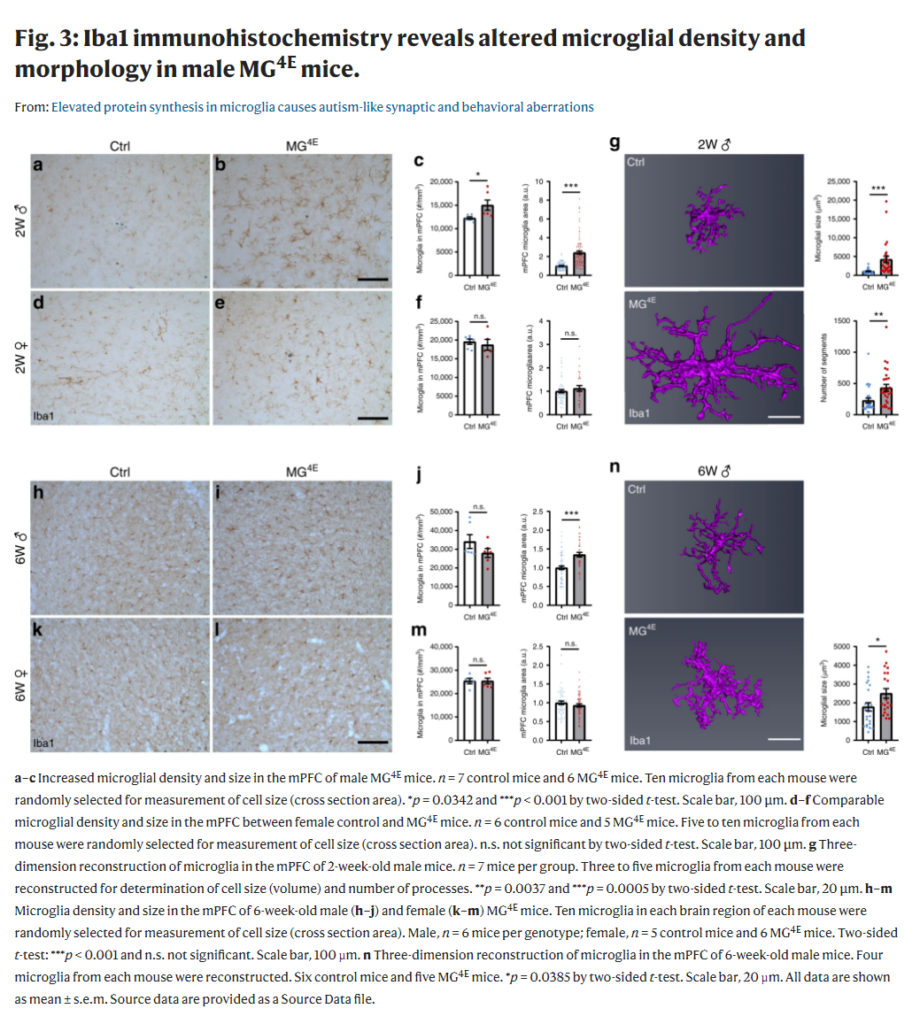多忙な講義の合間を縫って、医学群医学類M3のSさんも参加して下さいました!
Nature Communications Published: 14 April 2020
Elevated protein synthesis in microglia causes autism-like synaptic and behavioral aberrations (ミクログリア内のタンパク質合成の上昇は、自閉症様のシナプス異常及び行動異常を引き起こす)
Zhi-Xiang Xu, Gyu Hyun Kim, Ji-Wei Tan, Anna E. Riso, Ye Sun, Ethan Y. Xu, Guey-Ying Liao, Haifei Xu, Sang-Hoon Lee, Na-Young Do, Chan Hee Lee, Amy E. Clipperton-Allen, Soonwook Kwon, Damon T. Page, Kea Joo Lee & Baoji Xu*
Department of Neuroscience, The Scripps Research Institute Florida, Jupiter, FL, 33458, USA
Nature Communications volume 11, Article number: 1797 (2020)
Abstract
Mutations that inactivate negative translation regulators cause autism spectrum disorders (ASD), which predominantly affect males and exhibit social interaction and communication deficits and repetitive behaviors. However, the cells that cause ASD through elevated protein synthesis resulting from these mutations remain unknown. Here we employ conditional overexpression of translation initiation factor eIF4E to increase protein synthesis in specific brain cells. We show that exaggerated translation in microglia, but not neurons or astrocytes, leads to autism-like behaviors in male mice. Although microglial eIF4E overexpression elevates translation in both sexes, it only increases microglial density and size in males, accompanied by microglial shift from homeostatic to a functional state with enhanced phagocytic capacity but reduced motility and synapse engulfment. Consequently, cortical neurons in the mice have higher synapse density, neuroligins, and excitation-to-inhibition ratio compared to control mice. We propose that functional perturbation of male microglia is an important cause for sex-biased ASD.
